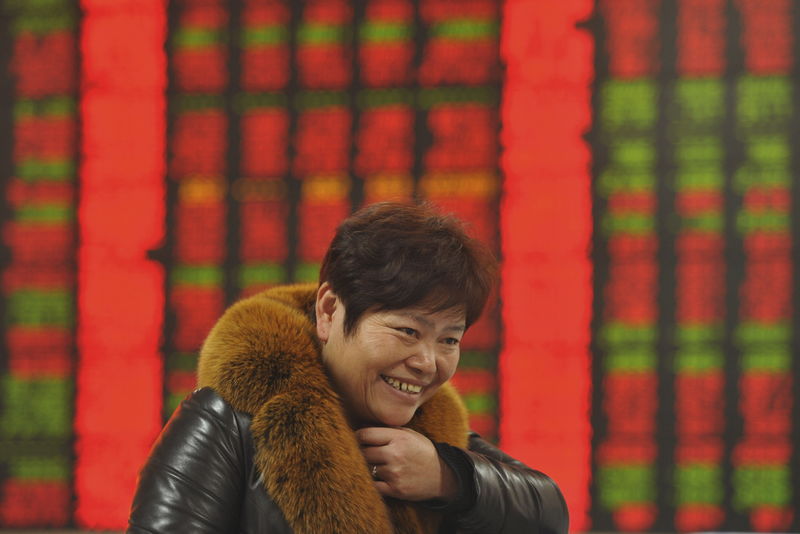By Nichola Saminather and Wayne Cole
SINGAPORE/SYDNEY (Reuters) - Asian share markets looked set to end a rough, volatile year on a subdued note on Thursday as a renewed slide in oil prices sapped sentiment, a baleful trend that shows every sign of lingering into 2016.
The relentless decline in oil prices, which have slumped as much as 35 percent this year, has hit currencies of commodity-rich countries including the Russian rouble, Canadian dollar, Norwegian crown, Brazilian real and Mexican peso.
While cheaper fuel is a boost to consumer spending power in much of the developed world, it is also a disinflationary force that reinforces bets on loose monetary policy in Europe, Japan and China, even as the Federal Reserve proceeds with glacial tightening.
Oil prices are ending the year how they began - under pressure. Brent crude skidded toward 11-year lows after an unusual build in U.S. stockpiles and signs Saudi Arabia will keep adding to the global oil glut.
"Ever get the feeling that you've been here before?" wondered analysts at National Australia Bank in a note to clients.
"It is the end of another year with oil prices very weak - having fallen by around a third again since the summer - China fears are at the fore and everyone is still talking about the Fed."
U.S. crude futures (CLc1) gave up gains in early Asian trade to stand flat at $36.58 a barrel, after a drop of 3 percent the previous session. They are on track for a 27 percent loss this year.
Brent crude (LCOc1) also erased earlier gains to trade up 0.1 percent at $36.55, after a 3.5 percent drop in the previous session. It's set for a slump of 35 percent for 2015.
That was bad news for most commodity currencies. The dollar hit a more than one-year high against the Russian rouble The five worst-performing currencies this year have been the Argentinian peso The Australian and New Zealand dollars have had the biggest losses among Asia Pacific currencies. The Aussie Moves between the majors were much more limited. Against a basket of currencies, the dollar was flat at 98.247 (DXY). It was also steady on the yen at 120.455 Holidays limited the damage in Asian markets on Thursday with many either closed or shutting early. Japan was one of the markets off on Thursday, though it was also one of the better performers this year with gains of almost 10 percent for the TOPIX (TOPX). Others have not fared so well. MSCI's broadest index of Asia-Pacific shares outside Japan (MIAPJ0000PUS) was little changed but set to end the year 12 percent lower. Australia's main index (AXJO) slipped 0.3 percent, widening losses for 2015 to 1.7 percent. China's Shanghai Composite index <.SSEC> and CSI300 <.CSI300> were both little changed on Thursday. Despite a savage summer rout which rocked global markets, China had the region's best performing emerging market indexes in 2015, with the former set for a gain of 10.5 percent and the latter 6.6 percent. Thailand (SETI) and Indonesia (JKSE), both of which were closed Thursday, were the worst performing Asian emerging markets this year, with losses of 14 percent and 12.1 percent, respectively. New Zealand <.NZ50> was the best-performing Asia-Pacific developed market, with gains of 13.5 percent, and Singapore (STI) was the worst, with a 14 percent loss. The next major Asian event will be official readings on Chinese manufacturing and services in December, due on Jan. 1. Activity in China's manufacturing sector is expected to have contracted for a fifth straight month, a Reuters poll showed, likely consigning the world's second-largest economy to its slowest annual growth rate in 25 years. Losses in energy stocks weighed on Wall Street on Wednesday, where the Dow (DJI) ended down 0.66 percent. The S&P 500 (SPX) fell 0.72 percent and the Nasdaq (IXIC) 0.82 percent. Apple (O:AAPL) was the single biggest drag, falling 1.31 percent on fears of potentially soft iPhone sales.